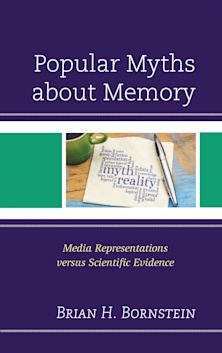Methodological Problems with the Academic Sources of Popular Psychology
Context, Inference, and Measurement
Methodological Problems with the Academic Sources of Popular Psychology
Context, Inference, and Measurement
This product is usually dispatched within 2-4 weeks
- Delivery and returns info
-
Flat rate of $10.00 for shipping anywhere in Australia
Description
Methodological Problems with the Academic Sources of Popular Psychology: Context, Inference, and Measurementexamines the relationship between academic and popular psychology from a critical perspective with a focus on issues of methodology. The monograph traces the path from ideas in reputable popular psychology back to the original academic research tradition from which the claims were generated. It also addresses the conceptual and methodological controversies with respect to the original research typically ignored or played down in popular writing. This book covers a range of topics including the question of universal biases in judgment, resurgent notions of “fast” thinking and a cognitive unconscious, the psychology of happiness and other “positive” psychologies, the effects of parenting on child outcomes, and more general issues related to psychological tests and measures. The methodological problems that emerge include problems with generalizing from specific experimental conditions, highly biased sampling, lack of replication of findings, lack of shared referents across subfields, even different authors, as well as confusion around basic statistical and mathematical issues. Methodological Problems with the Academic Sources of Popular Psychology: Context, Inference, and Measurementreviews these issues extensively, offering both a sense of the history and pervasiveness of these issues in the field itself and an opportunity to review and master these difficult ideas.
Table of Contents
Chapter One: The Past and Present Landscape of Pop Psychology
Chapter Two: The Psychology of Cognitive Biases
Chapter Three: Fast Systems and Unconscious Cognition
Chapter Four: Happiness Psychology and Uncertainty
Chapter Five: The Effects of Parenting: Correlations and Causes
Chapter Six: Psychological Measurement: IQ, Personality, and Emotional Intelligence
Conclusion: How to Read Pop Psychology
Product details
| Published | 11 Apr 2019 |
|---|---|
| Format | Paperback |
| Edition | 1st |
| Extent | 266 |
| ISBN | 9781498524162 |
| Imprint | Lexington Books |
| Illustrations | 1 Table |
| Dimensions | 223 x 150 mm |
| Publisher | Bloomsbury Publishing |


































